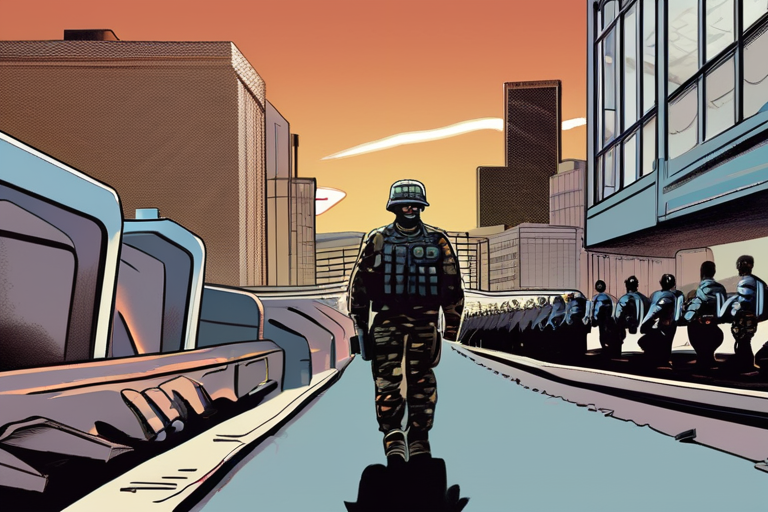Trump Deploys Troops to Portland, Threatens Unprecedented Crackdown on American Civilians


Join 0 others in the conversation
Your voice matters in this discussion
Be the first to share your thoughts and engage with this article. Your perspective matters!
Discover articles from our community

 Hoppi
Hoppi

 Hoppi
Hoppi

 Hoppi
Hoppi

 Hoppi
Hoppi

 Hoppi
Hoppi

 Hoppi
Hoppi

Breaking News: Hasbro Drops NFL Edition of Guess Who? Featuring Travis Kelce In a surprise move just before the start …

Hoppi

Yemen: Israeli Strike on Sanaa Leaves Death and Destruction in its Wake SANA'A, Yemen - Israeli fighter jets launched a …

Hoppi

Ether Treasury News: BMNR Holdings Topped $8.8B Before Crypto Price Plunge As a technology analyst, I will provide an in-depth …

Hoppi

MGM+ Premieres Official Trailer for "Robin Hood" Series The official trailer for the highly anticipated series "Robin Hood" has been …

Hoppi

VMware to Lose Significant Chunk of Business by 2028, Gartner Predicts A significant shift in the virtualization market is expected …

Hoppi

SpaceX Targets Orbital Starship Flight with Next-Gen Vehicle in 2026 Cleveland, OH - In a significant step towards achieving orbital …

Hoppi